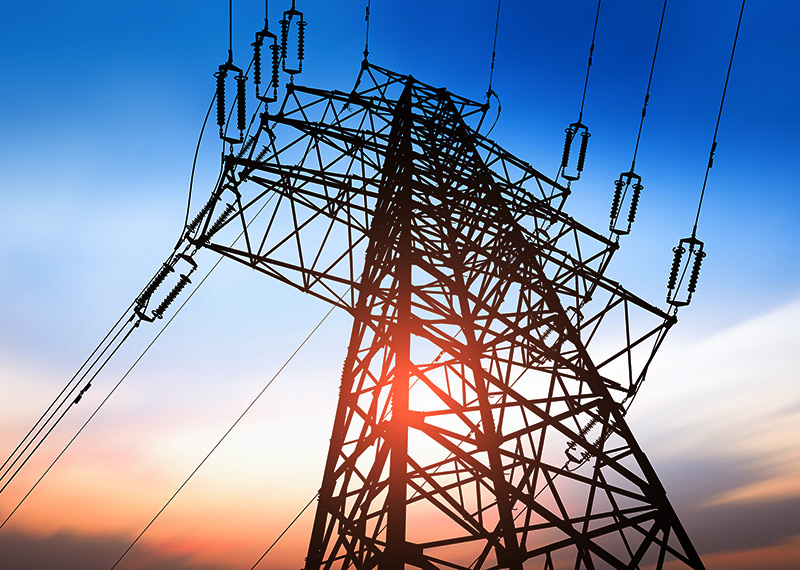ARENA is set to fund United Energy to the tune of $900,000 in order to trial the company’s Dynamic Voltage Manage System (DVMS) over the 2019/20 summer.
United Energy’s DVMS delivers Frequency Control Ancillary Services (FCAS) to the Australian Energy Market Operator (AEMO) and the National Electricity Market (NEM). Basically, what that long-form equation of acronyms and initialisations means is that significant portions of energy are kept readily available to AEMO for fast injection or reduction in order to maintain grid stability.
Traditionally, these FCAS have only been provided by coal, gas and hydro-electric power stations. However, United Energy’s DVMS technology aims to deliver 30 MW of FCAS capability to the NEM, an ambition to be tested in a $1.4 million trial.
DVMS works via the installation of frequency monitors and the collection of data from United Energy’s smart meter network across 47 zone substations. Using this information, DVMS is able to quickly act to stabilise the grid via simple voltage management throughout the network, for instance, responding to frequency disturbances. The trial looks to test these capabilities and ensure a swiftness of response time, the DVMS must be able to automatically respond to frequency changes in less than five minutes.
ARENA CEO Darren Miller said the project will demonstrate how innovative new technologies can provide important grid services that have traditionally been provided by goal and gas generators.
“United Energy’s project is showing we could leverage data coming from smart meters to help provide essential stability services that are required on the grid without customers being asked to reduce their energy use,” said Miller.
Voltage management could prove one of the easiest demand response capacities at the disposal of AEMO. While other forms of demand response require an onus on either the consumer or the generator, the prevalence of smart meter technology, especially in Victoria, allows for the smart distribution of voltage around the grid during times of high demand.
Of course, with the continuous integration of renewable energies into the grid, voltage management is more necessary than ever. ARENA has already funded FCAS trials at solar and wind farms and the trials to play out over the summer of 2019/20 will look to demonstrate that voltage management from renewable energies can deliver the same grid stability services that traditional generators have provided to AEMO in the past.
United Energy’s General Manager, Electricity Networks Mark Clarke said if the trial was successful, it would provide significant benefits to customers and the grid as a whole.
“Victoria is unique as our extensive smart meter network allows us to have in-depth insight and control of the network and this trial will allow us to look at new ways to use this data for the benefit of the broader community,” Mr Clarke said.
“Frequency events can have a major impact on power supplies if not managed quickly,” continued Clarke, “we will be testing how this technology can support the stability of the national energy grid and minimise major power outages.”
United Energy has previously been the beneficiary of $5.75 million in ARENA funding as one of ten pilot projects within ARENA’s $35 million three-year demand response trial with AEMO and the NSW Government. ARENA believes that these voltage management responses have already prevented power outages for 14,000 customers each hour during last summer’s heatwave events on January 24 and 25.
After several summers in a row punctuated by high-demand related blackouts across the country, most notably in South Australia, there is a strong necessity for a variety of demand response capabilities at the disposal of AEMO. Moreover, as the energy market transitions to renewables it is of the utmost importance that demand response capabilities are already built-in.
This content is protected by copyright and may not be reused. If you want to cooperate with us and would like to reuse some of our content, please contact: editors@pv-magazine.com.









By submitting this form you agree to pv magazine using your data for the purposes of publishing your comment.
Your personal data will only be disclosed or otherwise transmitted to third parties for the purposes of spam filtering or if this is necessary for technical maintenance of the website. Any other transfer to third parties will not take place unless this is justified on the basis of applicable data protection regulations or if pv magazine is legally obliged to do so.
You may revoke this consent at any time with effect for the future, in which case your personal data will be deleted immediately. Otherwise, your data will be deleted if pv magazine has processed your request or the purpose of data storage is fulfilled.
Further information on data privacy can be found in our Data Protection Policy.